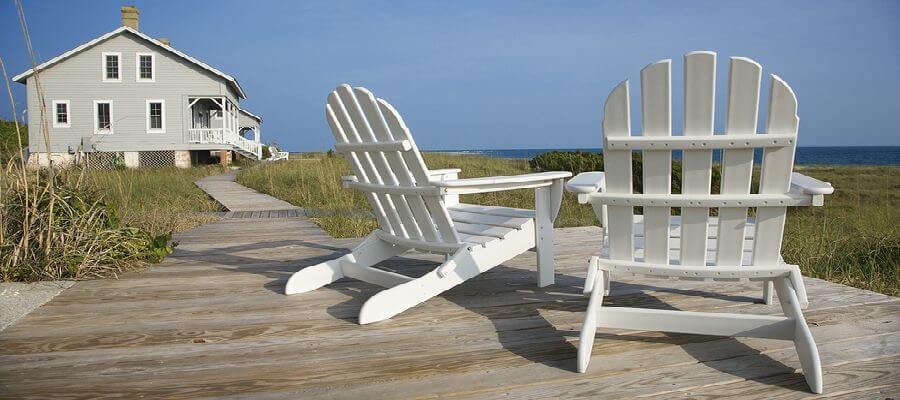 Are you interested in buying second home? You may be wondering how to go about buying a second home. Weather you’re looking to buy a second home as a vacation property for summers or winters, or looking for an investment property to rent out. In this article we’re going to show you how to buy a second home and go over your options.
Are you interested in buying second home? You may be wondering how to go about buying a second home. Weather you’re looking to buy a second home as a vacation property for summers or winters, or looking for an investment property to rent out. In this article we’re going to show you how to buy a second home and go over your options.
1. Government Loans are Not Available for a Second Home
FHA loans are intended to encourage homeownership, it’s a favorite among first-time buyers. They require just 3.5% of the purchase price as a down payment, have more lenient credit score requirements, and are overall easier to qualify for than conventional loans. FHA loans are not available for a rental property you do not intend to occupy as your primary residence. The same applies to VA loans, 203k and USDA loans. Government mortgage programs are only available for your main residence.
2. You May be Able to Get a Second FHA Loan
There are two situations that will allow you to get a second FHA loan if your current mortgage is insured by the FHA. If you currently have an FHA loan you may be able to get a second FHA loan to purchase a new and rent out your old home if… You got a new job that forced you to move to another location. Or if your family has outgrown your current home and needs are larger home to accommodate your family.
3. You will Need A Conventional Mortgage
You can buy a second home as an investment property with a conventional mortgage. An advantage of conventional loans is that there aren’t many restrictions on the type of home you can buy. Types of Properties Eligible for a Conventional Loan Single-family home Condo/townhouse 2-4 unit properties Conventional loans do require a higher down payment than any Government backed mortgage. The maximum loan-to-value ratio most mortgage lenders will allow is about 90% LTV.
4. Sufficient Income is needed to Get Approved for a Second Home
You will need to meet debt-to-income ratio guidelines in order to get approved for a second mortgage. If you currently have a mortgage on your primary residence this means you will have to have enough income to cover both mortgage payments without having a debt-to-income ratio above 41%. To calculate your debt-to-income ratio (DTI ratio) you will take your total monthly debt payments, such as your credit card payments, student and personal loans, your current mortgage and your estimated mortgage payment on your second home and divide it by your monthly pre-tax income. You will not be able to use projected rental income. Calculate how much of a second home can you afford
5. You Need to Have at Least a 620 Credit Score
Conventional loans require a FICO score of at least 620. Of course the higher your credit score the better interest rate you’ll receive. Before applying for a second mortgage you should make sure your credit rating is as high as it can be. Pay down credit card balances – The amount of available credit you are using on your credit cards is your credit utilization ratio. Credit utilization accounts for 30% of your overall credit score, only your payment history (35%) has a bigger impact on your score. Try to get your balances below 15% of the credit limit, you’ll notice a big difference in your credit score. Don’t close any accounts – Closing old accounts for any reason can actually drop your credit score. The average age of your open accounts makes up 15% of your credit rating. Don’t open new accounts – If you know you’ll be attempting to get a home loan in the near future its a good idea to hold off on opening any new credit or loan accounts. New accounts drop your credit score initially because credit inquiries and new accounts make up 10% of your score each. More tips on improving your credit score fast
6. A Real Estate Agent is Still Needed
Some people falsely believe they can save money on an investment property by not using a real estate agent. This couldn’t be father from the truth. In fact, the buyer doesn’t pay for a buyers agent, the seller does. The 3% commission is built into the price of the home. Just because you’re not using a realtor doesn’t mean you’re going to save 3%. Plus real estate contracts are complex and you may end up paying for things the seller usually pays for. Always use a real estate agent when buying a home.
Buying a Second Home as an Investment
If you’re considering buying a second home to rent out, or move to and rent your old home. There are some great benefits. For one you can sell your investment home and use the proceeds to buy another rental property without paying a capital gains tax. A rental property is a long-term investment, you could pay the mortgage with the rent income each month and pay off the mortgage without spending any of your own money. You will still be able to write-off the interest paid on your second home which is a huge plus.
Buying a Second Home that will be a Vacation Property
Maybe the reason you’re buying a second home is because of harsh summers or winters in your state. A vacation home or home that you live in part-time, for the summer or winter doesn’t change your options for a mortgage. Any type of Government loan like an FHA or VA loan won’t be available to you. You’ll have to get a conventional mortgage in order to purchase a second home. There are some disadvantages of having two homes such as paying property tax on two properties. Also your cash flow will be reduced as you’re paying two mortgage loans. However, if you can afford it theres a big payoff in the end when you own both homes outright.
Original article found at: https://thelendersnetwork.com/buying-a-second-home/

